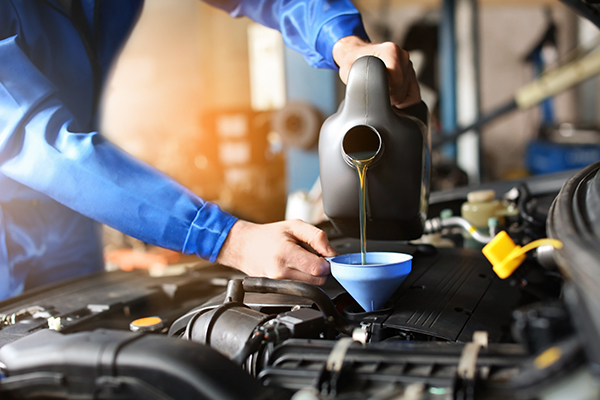Posted on 12/23/2023
.jpeg)
Car ownership is a journey filled with twists and turns, but what happens when your trusty companion, the engine, starts singing a different tune? The timing chain - an often overlooked yet crucial component that we'll explore today. Below are five unmistakable signs that your timing chain may be due for a change. 1. Rattling Sounds One of the earliest signs that your timing chain is begging for attention is an unusual rattling noise emanating from the engine bay. This metal-on-metal sound occurs when the timing chain has developed slack or when the tensioner is worn. 2. Sputtering Performance If you notice your car sputtering or hesitating during acceleration, it might be a cue from the timing chain that it's losing its grip on precision. A stretched or failing timing chain can throw off the engine's timing, resulting in a lackluster performance ... read more
Posted on 11/29/2023

With the swift arrival of winter, the landscapes transform into frosty wonderlands, which means it's time to turn our attention to a steadfast companion - your F-150. Despite being one of the most reliable trucks, renowned for its resilience, it deserves tailored care to navigate the challenges that winter brings. Let's take a look at what we have to say. The Importance of Tire Tread The foundation of winter preparedness begins where the rubber meets the road—your tires. Equip your F-150 with winter-ready tires boasting deep treads to enhance traction on snow-covered roads. Consider investing in snow tires for optimum grip, as they are designed to tackle slippery terrain with confidence. Also, take into account the tread pattern, since it also impacts the tire's ability to grip correctly. Fluid Maintenance Winter demands spec ... read more
Posted on 10/28/2023

Owning a Cadillac is a symbol of luxury and sophistication, embodying a rich legacy of automotive excellence. Yet, even amidst its prestigious reputation, every Cadillac owner encounters the possibility of common hiccups that can diminish the driving experience. From electrical issues to mechanical woes, understanding how to navigate through these potential roadblocks is essential for preserving the performance and elegance of your prized Cadillac. So, whether you're cruising in a classic beauty or reveling in the modern marvels of engineering, let's embark on a journey to explore how you can steer clear of the most common problems in Cadillacs and ensure a seamless and delightful ride. Electrical Gremlins Cadillac models are renowned for their intricate electrical systems, which, at times, can be susceptible to glitches. To avoid common electrical problems, regularly inspect the battery, check for loose connections, and keep an eye on any signs of fli ... read more
Posted on 9/29/2023
.jpeg)
The timing belt, hidden deep within your engine, connects the crankshaft and the camshaft(s), ensuring that the engine's valves open and close at precisely the right moments. This coordination is crucial for proper engine function, as it controls the timing of fuel injection and exhaust, maintaining the engine's rhythm. Why Timing Belt Replacement Matters Timing belts are made of durable materials, but over time, they can wear, crack, or break. When a timing belt fails, it can lead to catastrophic engine damage, including bent valves, damaged pistons, and even a total engine failure. To avoid these costly repairs, regular timing belt replacement is essential. Timing Belt Replacement Intervals The recommended timing belt replacement interval varies between vehicle makes and models, typically ranging from 60,000 to 100,000 miles. Consult your owner's manual or ask your trusted auto technician for guidance on your specific vehicle. Signs Your Timing Belt Needs Replacement ... read more
Posted on 8/31/2023

In the intricate dance of engine components that power your vehicle, the oil filter plays a crucial yet often underestimated role. This unassuming "device" quietly safeguards your engine's health by filtering out contaminants from the engine oil. But why does the oil filter need to be changed regularly? Can't you simply continue driving without bothering about it? The Purpose of the Oil Filter The oil filter is your engine's first line of defense against harmful particles that can wreak havoc on its delicate internals. As engine oil circulates through the motor, it picks up debris, dirt, metal fragments, and sludge. The oil filter's job is to trap these contaminants, preventing them from circulating further and causing damage to the engine. How Do Contaminants Affect Your Vehicle Over time, the oil filter accumulates a substantial amount of debris. As it continues to trap contaminants, it gradually becomes clogged an ... read more